 |
| Henry James |
The Top 10 Henry James Novels
By Michael Gorra
Aug 24, 2012
Aug 24, 2012
Michael Gorra's new critical biography, Portrait of a Novel: Henry James and the Making of an American Masterpiece, tells the story of how James' most popular and enduring novel, The Portrait of a Lady, came to be written; and of what happened to him because of it. Gorra, the Mary Augusta Jordan Professor of English at Smith College, gives us his favorites of the prolific writer's novels and longer stories.
Some readers like the bright effervescent comedy of early James, where the dialogue can remind you of Mozart; others the grave majesty of his late style--those sentences that seem to pulse with the very force of thought. Me, I’ll take them both. He’s the most prolific of great American writers: twenty novels, over a hundred stories and novellas, and volume after volume of travel sketches and criticism. He’s also the most polished, and his critics used to complain that he wrote too well, that his books weren’t the comfort food they were used to. Nowadays, of course, he seems like the voice of leisure itself, of a world with the time to look and think and linger. These are the novels and tales to which I return with the most pleasure—the ones I most look forward to rereading.
1. The Portrait of a Lady (1881) - When James began this book he was a promising young writer with a special line in depicting the lives of Americans in Europe. When he finished it he had become a figure in the history of the novel itself. This story of a young American woman in England and Italy—of her stifling marriage and her desperate fight for freedom—stands as a link between two centuries. It’s the bridge on which the loose expansive Victorian novel flowed over into the formal concentration of modernism; the link, say, between George Eliot and Virginia Woolf.
2. The Golden Bowl (1904) - Sure, it’s hard, and you’ll feel proud of yourself when you finish. It’s meant to be hard, because James’ characters are all trying to figure out what the others know about a situation that none of them can quite bring him or herself to name. Maggie Verver’s best friend is sleeping with her husband; the best friend who has also just married her fabulously rich widowed father. Watching Maggie awake into a pained consciousness of the world around her—well, it’s like an enormous wave that grows and grows and never quite breaks.
3. “The Aspern Papers” (1888) - Lies and secrets, Venice and treachery. An old woman guards a clutch of love letters from a long-dead poet; an editor wants them and will do almost anything to get them. James wrote many stories about writers and artists, and thought so hard about the relation of art and life that he burned many of his own letters and hoped that he would have no biographer. This story will make anybody who does write about him wonder about the claims of privacy and the inevitability of betrayal.
4. What Maisie Knew (1897) - One reviewer said this novel was fully as indecent as if it had been written in French. It’s the first important novel in English to turn on a child custody case, and more timely now than ever. This family is blended in all the wrong ways, and little Maisie—whose age is never specified—has to puzzle it all out.
5. The Ambassadors (1903) - James’ own favorite among his works, and a book consciously based upon a cliché, the old idea that as soon as an American arrives in Paris his whole set of moral beliefs and practices will immediately fall to pieces. Yet suppose it’s all for the best? For with Puritanism in tatters, just think about the possibilities for growth and change…
6. Washington Square (1880) - Set in New York at right about the time of James’s own birth in 1843, this short novel describes a provincial city that didn’t yet reach much north of 14th Street. His prose was never more epigrammatically brilliant than in this book about a stubborn daughter and a pigheaded father. My students always love it, and they immediately get its point—so now I’m waiting to see what my own daughter thinks about it.
7. The Bostonians (1886) - Any good liberal—and James was one—who has ever chafed at the excesses of his or her own side will love the satire of this book’s opening chapters, which take on the whole of New England’s reforming spirit. (But Boston wasn’t ready to be laughed at; the book bombed.) A more enduring strength is its treatment of gender roles in post-Civil War America, and especially its account of what came to be known as a “Boston marriage”: the domestic partnership of two educated women, where our knowledge stops at the shut door of their room.
8. “Daisy Miller” (1878) - The story that made James’ reputation, the tale of an impossibly well-dressed American girl and her adventures in Europe. Look at her, taking a moonlight walk with an Italian in the Colosseum. Is she “fast” or just badly brought-up? Readers argued about her over the dinner table and in the pages of America’s magazines alike, and in the end Daisy is killed by bad manners. Only they aren’t her own.
9. “The Turn of the Screw” (1898) - The longest and greatest and scariest of James’ ghost stories. An isolated house, a high-strung governess, two charming children, and two dead servants. I’ve never forgotten reading it for the first time on a November midnight—when the ghost appeared I really did jump up from my chair. Read it once, and then read it again and see if you think it’s still the same story.
10. The Tragic Muse (1890) - I know, I know—for this last one I should pick an undisputed classic like The Wings of the Dove, the third of James’s clutch of late masterpieces, or maybe “The Beast in the Jungle,” his great tale of a blighted heart. But I’m fond of this underrated novel, James’s most thoroughly English book. Usually he shunned the multi-plotted novels of his Victorian peers. Here he pays them tribute instead, setting one narrative line in the world of the theater, and the other in British parliamentary politics. Each of them turns on the question of vocation, and neither of them really ends happily. James’s first readers always complained about that with him, but today it’s just one of the many things that makes him seem our contemporary.


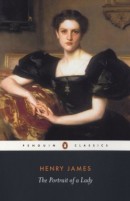
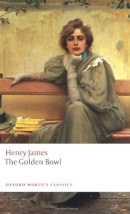
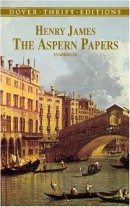
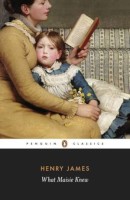
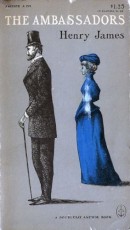
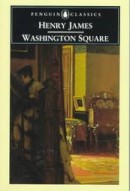
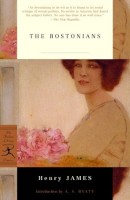
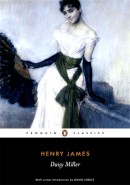
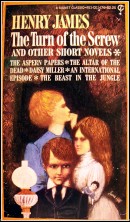
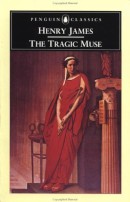

No comments:
Post a Comment